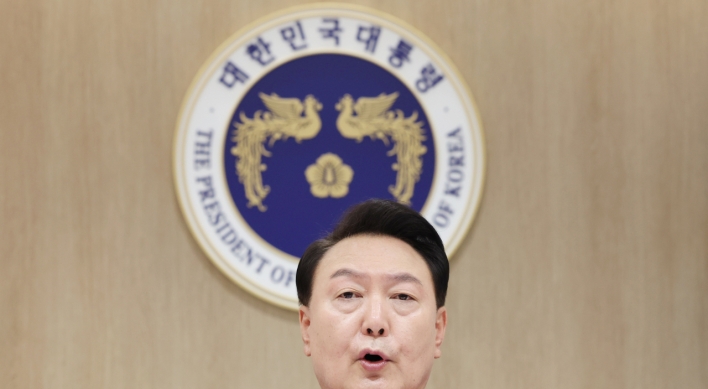The recent Sturm und Drang in Washington over a possible government shutdown was just a warm-up act for the more significant budget disputes to come this year. Rather than haggling over a few billions of dollars in spending, the debate over the budget for the next fiscal year will involve trillions of dollars worth of deficits and debt. And soon after Congress adopts a budget, it will have to decide whether to raise the limit on federal borrowing beyond the current cap of $14.3 trillion.
From that perspective, the recent brinksmanship over funding the government through Sept. 30 seems like much ado about nothing. Still, the agreement reached last week mattered because lawmakers from both parties made real commitments that should ease the path to compromise on the bigger disputes ― assuming they recognize and honor those commitments.
On the Democratic side, merely agreeing to cut domestic discretionary spending instead of freezing it (as President Obama had proposed) concedes that Washington’s focus has shifted. No longer are budget debates going to be about borrowing and spending more to stimulate the economy. Now the goal is simply to shrink the deficit.
That shift forces Democrats to examine the health care entitlements ― Medicare and Medicaid ― that are the real source of the long-term deficit problem. Not coincidentally, Rep. Paul Ryan, R-Wisconsin, has made revising Medicare and Medicaid a centerpiece of his ambitious but controversial budget proposal for fiscal 2012. Although Ryan’s approach to those programs leaves much to be desired, Democrats can’t ignore the problems they pose.
Republicans, for their part, agreed last week to continue operating government in the red at least through September. Ryan’s budget proposal, which House GOP leaders have embraced, would continue those deficits for decades. It would be irresponsible for Republicans now to oppose raising the debt ceiling. Giving the Treasury Department the authority to borrow more money ― which is what raising the debt ceiling would do ― simply enables the U.S. to pay its bills. Threatening to do otherwise could spook investors and raise borrowing costs, which would only make the deficit worse.
Some lawmakers are expected to try to make the debt-ceiling bill more palatable by throwing in provisions to cut the deficit. But the right places to rein in government borrowing are the budget and spending measures Congress passes every year, and the tax cuts that Washington has been passing out like candy for the past decade. Lawmakers should focus their deficit-cutting efforts on those targets.
(Los Angeles Times, April 12)
From that perspective, the recent brinksmanship over funding the government through Sept. 30 seems like much ado about nothing. Still, the agreement reached last week mattered because lawmakers from both parties made real commitments that should ease the path to compromise on the bigger disputes ― assuming they recognize and honor those commitments.
On the Democratic side, merely agreeing to cut domestic discretionary spending instead of freezing it (as President Obama had proposed) concedes that Washington’s focus has shifted. No longer are budget debates going to be about borrowing and spending more to stimulate the economy. Now the goal is simply to shrink the deficit.
That shift forces Democrats to examine the health care entitlements ― Medicare and Medicaid ― that are the real source of the long-term deficit problem. Not coincidentally, Rep. Paul Ryan, R-Wisconsin, has made revising Medicare and Medicaid a centerpiece of his ambitious but controversial budget proposal for fiscal 2012. Although Ryan’s approach to those programs leaves much to be desired, Democrats can’t ignore the problems they pose.
Republicans, for their part, agreed last week to continue operating government in the red at least through September. Ryan’s budget proposal, which House GOP leaders have embraced, would continue those deficits for decades. It would be irresponsible for Republicans now to oppose raising the debt ceiling. Giving the Treasury Department the authority to borrow more money ― which is what raising the debt ceiling would do ― simply enables the U.S. to pay its bills. Threatening to do otherwise could spook investors and raise borrowing costs, which would only make the deficit worse.
Some lawmakers are expected to try to make the debt-ceiling bill more palatable by throwing in provisions to cut the deficit. But the right places to rein in government borrowing are the budget and spending measures Congress passes every year, and the tax cuts that Washington has been passing out like candy for the past decade. Lawmakers should focus their deficit-cutting efforts on those targets.
(Los Angeles Times, April 12)



















